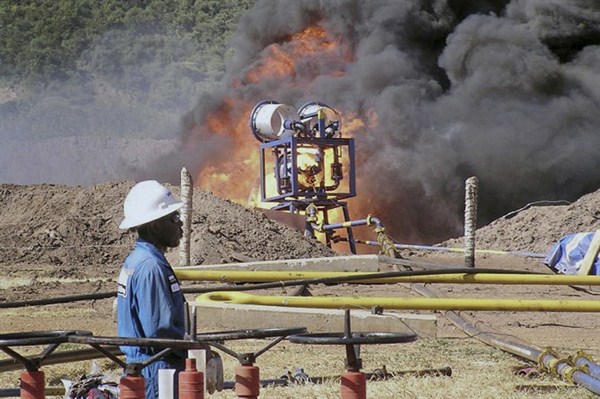KAMPALA, Uganda—As he delivers his lecture from the breezy, pink-hued classroom, Robert Rutaro is optimistic about Uganda’s future in oil.
An attorney with a master’s degree in oil and gas law from Scotland, Rutaro returned home this January to find a job in Uganda’s Ministry of Energy and now doubles as a lecturer at the Institute of Petroleum Studies-Kampala (IPSK), a two-year-old university offering a range of degree programs in oil and gas sector management. Since 2006, when the Anglo-Irish firm Tullow discovered East Africa’s first commercially viable oil in the vicinity of Uganda’s Lake Albert, the country has been at the forefront of an emerging hydrocarbons boom that analysts say has the potential to transform the region. Now, despite oil’s highly dubious record of driving development elsewhere on the continent, as well as evidence that Uganda’s nascent industry is already plagued by corruption, Rutaro and his 20 undergraduates are betting their careers on the sector.
“Uganda has an estimated 6.5 billion barrels in the Albertine Graben,” he tells his Fundamentals of Oil and Gas Law students during their first class of the semester, referring to a region in western Uganda. “But 60 percent of the basin is yet to be explored. We could become a very significant producer.”

